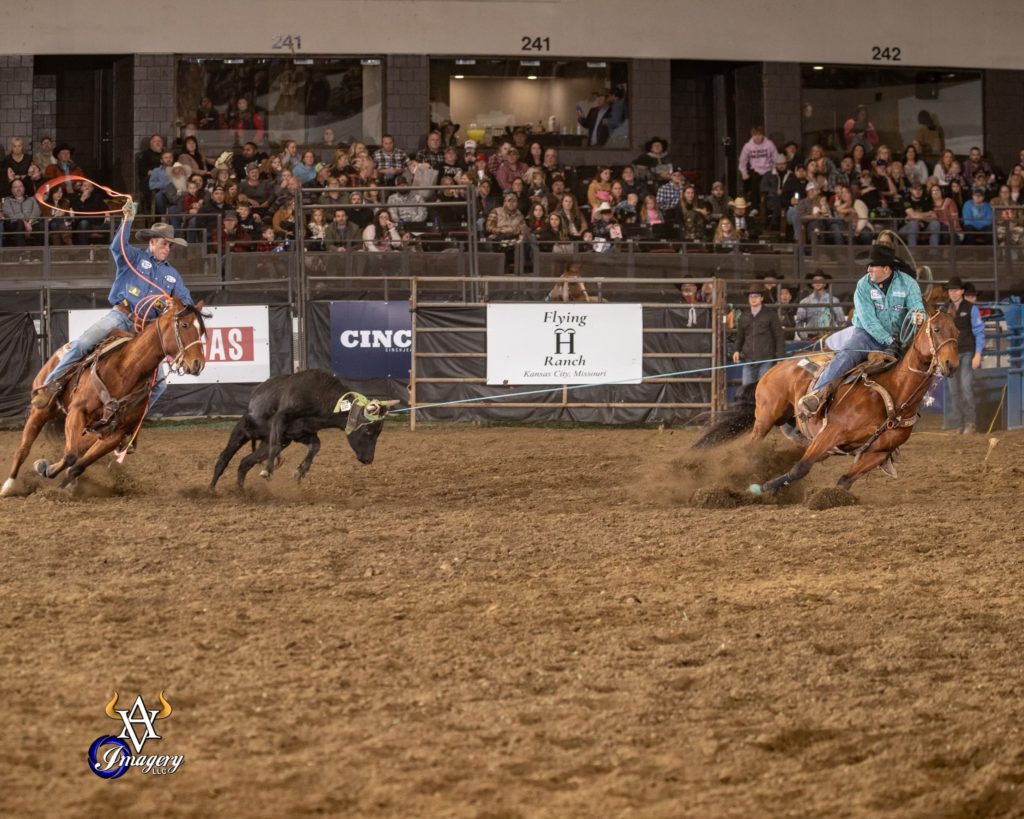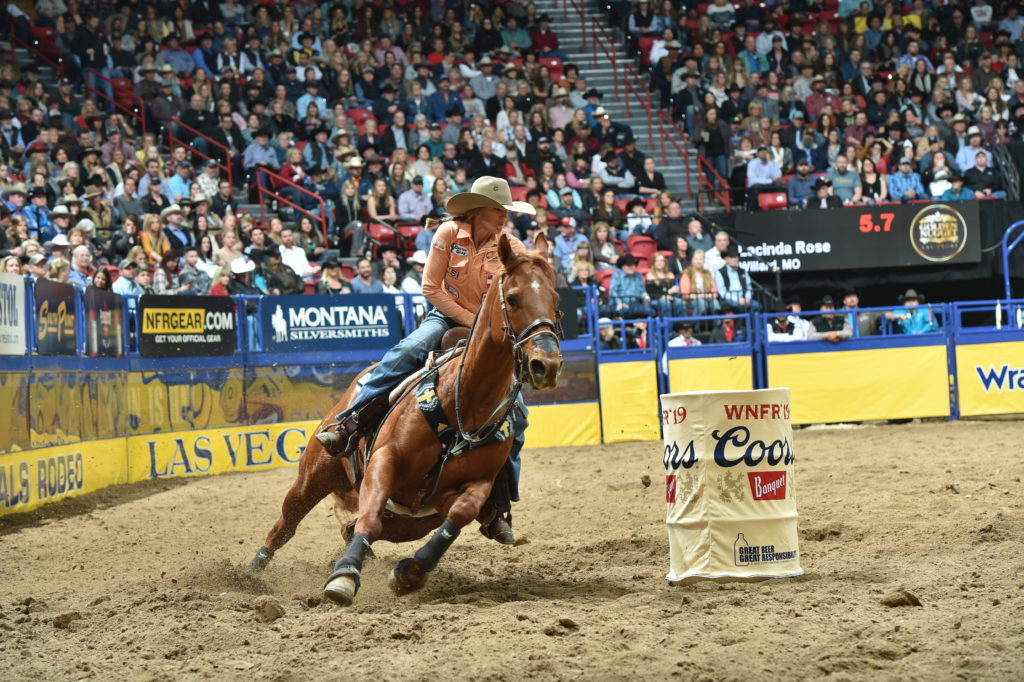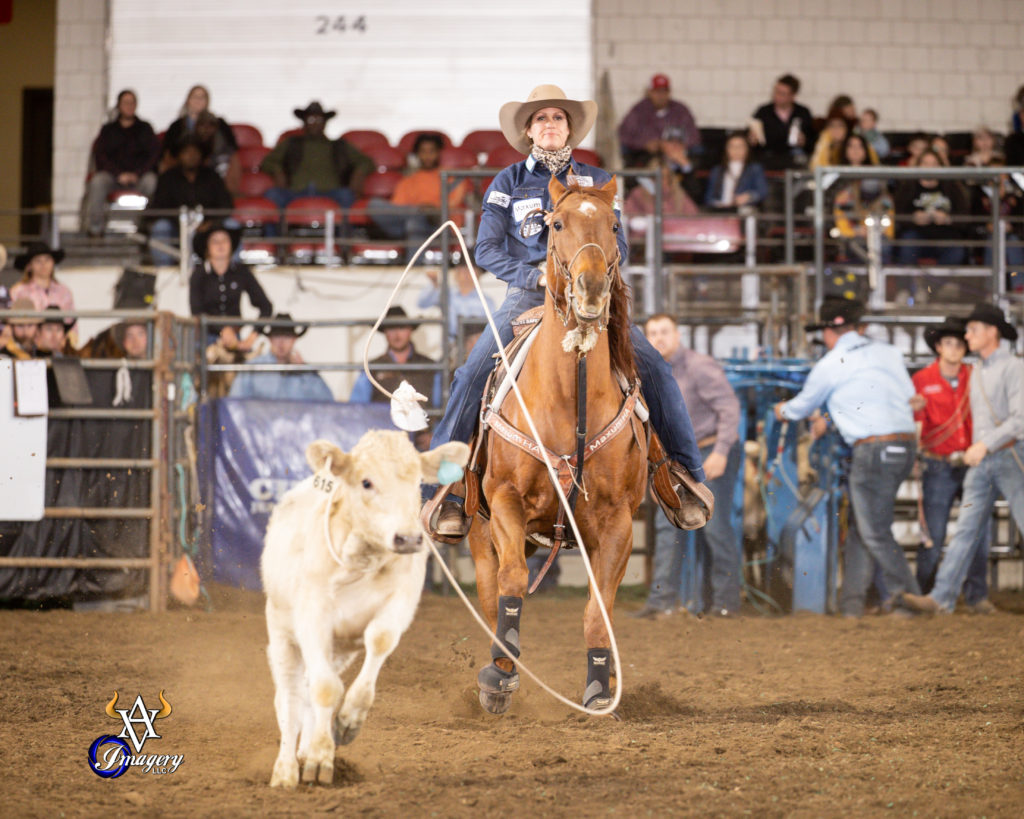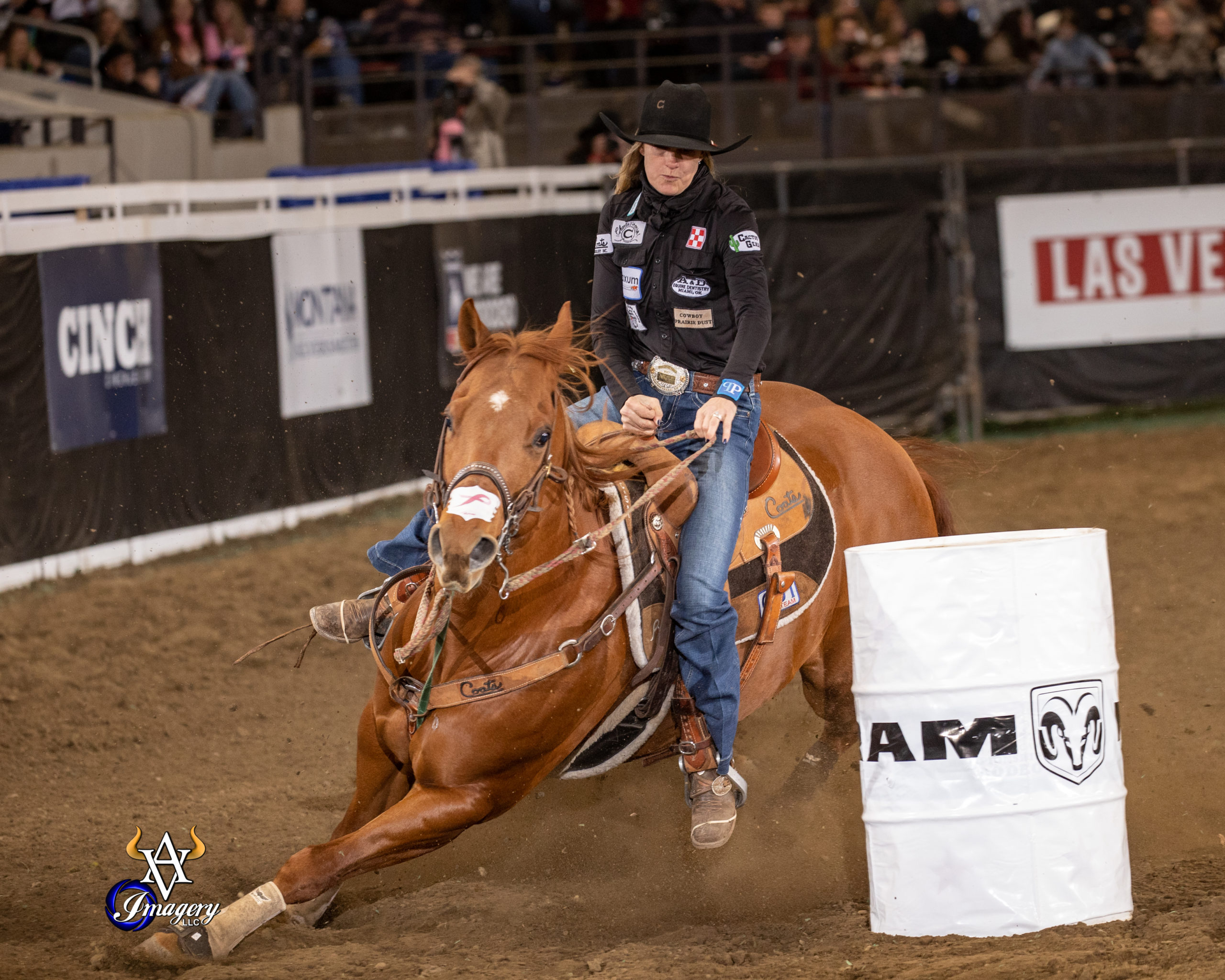In 2019, Lacinda Rose found herself at her first National Finals Rodeo with a big problem—her horse wasn’t firing in the confines of Thomas and Mack arena—and she couldn’t seem to clock fast enough for a piece of the payout.
Her solution was to call upon her husband, Adam, who has nearly $400,000 in PRCA team roping earnings himself, to rope a pen of steers off RR Meradas Real Deal, their 2008 sorrel gelding known as “Real Deal,” between rounds.
“Real Deal had some time off before the NFR. He’s the type of horse that gets stronger with more runs, and he was getting stronger every night, but you only have 10 rounds to make it happen out there. I had Adam run some steers off him during the day to get him firing, and that night I won my first NFR check,” Rose said.
Rose posted a video of Adam heading off Real Deal In the practice pen and social media was shocked. However, what most didn’t realize is that Real Deal had a history outside of the barrel pen.
“He was actually a rope horse before he was a barrel horse,” Rose said. “Adam asked me to start him on the barrels and I felt something special.”
After Real Deal proved himself fully in the barrel pen, he transitioned to full-time barrel seasoning, but there was a period of overlap where both Roses used the horse at rodeos.
Rose stated that to keep the peace in their marriage, she and Adam have figured out the three keys to making horse sharing work.
1. Listen.
“Adam has gotten a lot better over the years at listening to my needs when he ropes off barrel horses. If I say, ‘Hey, I need this one to fire more,’ he makes it happen,” Rose said.
Both partners have to communicate their needs in each event and agree on a training program that helps both sides accomplish their needs.
“Good communication is key. For example, when Adam starts a horse heading he’s really big on teaching them to face. Well, when I start teaching them to turn the first barrel that can mess them up. If he has faced them too much, they don’t stay rounded at the first barrel, but instead, they’ll turn it and try to face,” she explains. “At that point, he’ll have to pause on facing for a while until I teach them to turn a good first barrel, then he can go back to facing.”

2. Work together.
For a short time, both Adam and Lacinda were using Real Deal to compete at circuit rodeos. This took some juggling on both of their parts.
“There were some rodeos where Adam would put his roping saddle on Real Deal and I would throw my barrel saddle on top on the way to the arena because team roping and barrels were back to back. He would rope, and then we’d hurry up and put my saddle on so I could run,” she said.
Many people get worried that the stress of working two events can take a toll on the horse. Rose explained that she made sure to spend extra time caring for Real Deal to ensure that he was physically fit and comfortable enough to leave the arena feeling well.
“I take really, really good care of him to make sure that he’s feeling great,” Rose said.
As far as training styles, the Roses are fortunate that their individual riding styles can be complimentary in helping horses through their program across events.
“Adam asks a lot more, where I’m more laid back and let horses work more. So, if a horse isn’t giving it their all, Adam takes them for a while, but if they need backed off, I tend to do better with them,” Rose said.

3. Accept your mistakes.
“We help one another out a lot. We look at each other’s videos and head off problems before they start by analyzing one another,” Rose said.

The couple has had to learn to use their super-competitive natures for good by being forgiving of each other’s mistakes and accepting their own. Rose explained that this can be a struggle point for many couples to work through but is vital to help the horse have the best chance at success.
Rose, who qualified in both barrel racing and breakaway to the Great Lakes Circuit Finals in 2021, notes that in their eight years of marriage, she and Adam have grown in their ability to make horse sharing work, but she doesn’t recommend it to just anyone. “Horse sharing is possible, but it isn’t easy,” Rose said, in conclusion.



